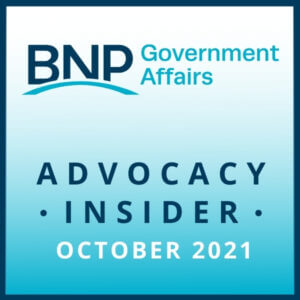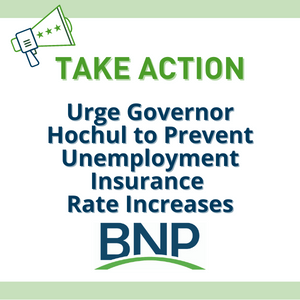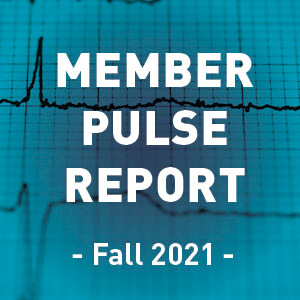8.10.21 Advocacy Alert: Senate Passes Bipartisan Infrastructure Bill
Blog Categories
August 10, 2021

What’s the latest?
This morning, the U.S. Senate passed a bipartisan infrastructure bill that will spend $1.2 trillion in total, including $550 billion in new spending.
The bill passed 69-30, with all Democrats and 19 Republicans voting in favor.
Some Republicans balked at the spending levels in the bipartisan bill, noting that the Congressional Budget Office predicted the bill would add $256 billion to the deficit over the next ten years. Supporters of the bill dispute this, claiming the CBO ignored many of the bill’s “pay for” provisions that finance these expenditures by repurposing existing revenue, not raising taxes.
The bill faces an uncertain future in the house. If the House GOP opposes the bill, four defectors from the 220-member Democratic conference would be enough to sink it.
Additionally, Speaker Nancy Pelosi has repeatedly stated she will not even bring the bipartisan bill to a vote in the House until the Senate passes a partisan budget bill that makes additional social investments. On Monday, Democrats released the budget resolution for this social spending plan, which has a $3.5 trillion price tag.
What’s in it?
The bipartisan infrastructure bill passed this morning includes:
- $110B in new spending on road & bridge repairs.
- $66B in new spending on rail, including Amtrak, Northeast Corridor upgrades, freight upgrades, and rail-highway crossing safety.
- $11B for highway and pedestrian safety.
- $39.2B for public transit system upgrades.
- $65B for broadband deployment and affordability.
- $17.3B for port and waterway improvements.
- $25B for airport runways, gates, terminals, and air traffic control.
- $55B for water and wastewater infrastructure.
- $73B for energy grid reliability and resiliency, and renewable technologies.
- $46B for “resiliency” efforts, including cybersecurity, waste management, and natural disaster preparedness & response.
- $15B for production and infrastructure for electric vehicles and low emission school buses and ferries.
What comes next?
The Senate could vote on the $3.5 trillion social spending package as soon as this week. Democrats need 50 votes to pass it, meaning losing support from any member of their caucus could jeopardize it.
If both bills pass, the House will consider both with votes expected in September. President Biden is expected to sign both bills once they reach his desk.
The BNP has long advocated for a bipartisan infrastructure agreement. Although this bill is imperfect, it provides the funding necessary to address numerous regional priorities.
The Senate’s passing of this bill is a significant step forward, and the BNP applauds Senator Schumer for his leadership on this issue.
The BNP will continue to keep you updated on the infrastructure package and the opportunities it creates.
Related Posts
10.13.21 Advocacy Alert: Canadian Border to Open in November
Late last night, U.S. officials announced plans to reopen the U.S. border to vaccinated, non-essential travelers from Canada and Mexico beginning in early November.
The administration told reporters last night that it does not plan to require vaccinated travelers to present a negative COVID-19 test, a notable difference from Canada’s policy for American travelers.
BNP Advocacy Insider – October 2021
The October 2021 Advocacy Insider is a roundup of important issues we are monitoring that could you and your business.
10.6.21 Advocacy Alert: Comptroller’s Report Warns of UI Rate Increases
Unless the state swiftly acts, New York employers may soon face significant unemployment insurance rate increases.
New York State Comptroller Tom DiNapoli recently released a report detailing the dire financial status of the state’s UI system, confirming concerns that the BNP raised this summer.
Workforce & Labor Concerns Dominate BNP’s annual Member Pulse Report
The Partnership’s annual Advocacy & Member Survey is designed to identify pain points, areas of concern, and obstacles to growth. We have summarized the 2021 results in the Member Pulse Report.
According to the survey, the top concern of Buffalo Niagara employers is their difficulty finding and retaining qualified talent.




